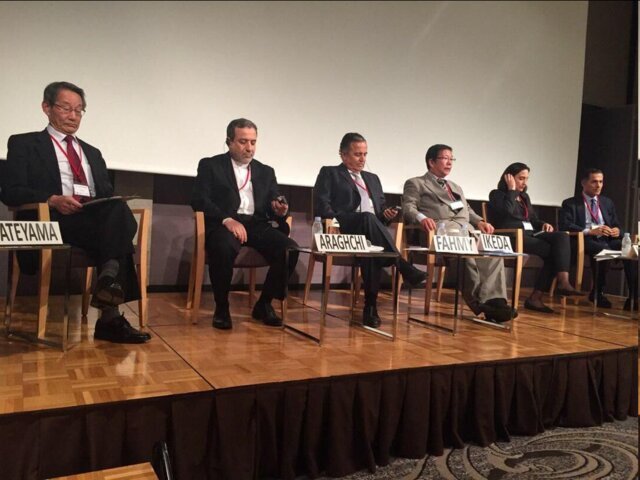‘No one can question Iran for reducing commitment to the JCPOA’

TEHRAN - Deputy Foreign Minister for Political Affairs Abbas Araghchi said on Monday that no one can question Iran for deciding to scale down its commitments to the 2015 nuclear deal, known as the Joint Comprehensive Plan of Action.
In a panel discussion in Tokyo, he said that Iran’s action in reducing nuclear commitments does not mean quitting the JCPOA.
“The current situation is the result of the United States’ withdrawal from the JCPOA and the only solution to it is removal of sanctions and return to diplomacy,” the top diplomat noted.
Iran has started to partially reduce its commitments to the JCPOA in response to the United States which abandoned the landmark deal in May 2018 and reinstituted sanctions.
So far, the Atomic Energy Organization of Iran (AEOI) has taken four steps to cut back commitments in accordance with paragraph 36 of the JCPOA which “allows one side, under certain circumstances, to stop complying with the deal if the other side is out of compliance.”
Top officials in Tehran has repeatedly said if the European Union shields Iran’s economy from the sanctions effect the country will reverse its decision.
Under the JCPOA, Iran promised to put limits on its nuclear activities in exchange for termination of economic and financial sanctions.
On May 8, exactly one year after the U.S. abandoned the deal, Tehran announced that its “strategic patience” is over and began to partially reduce its commitments to the agreement at bi-monthly intervals.
In the first stage, Iran announced that it will not limit its stockpile of the nuclear fuel to 300 kilograms allowed under the deal. On that date (May 8) Iran’s Supreme National Security Council (SNSC) said if the remaining parties to the JCPOA, especially Europeans, devise a mechanism to protect Iran from the sanctions’ effect in the two-month deadline it will reverse its decision.
But since European parties missed the deadline, on July 7 Iran announced that it has started enriching uranium to a higher purity than the 3.67%, thereby starting the second step.
Again, as Europe missed the second 60-day deadline, Iran moved to take the third step, removing a ban on nuclear research and development (R&D).
In the latest step, which started on November 6, Iran began injecting uranium gas into 1,044 centrifuges at the Fordow nuclear site. It was done at the presence of inspectors from the International Atomic Energy Agency (IAEA).
NA/PA
Leave a Comment